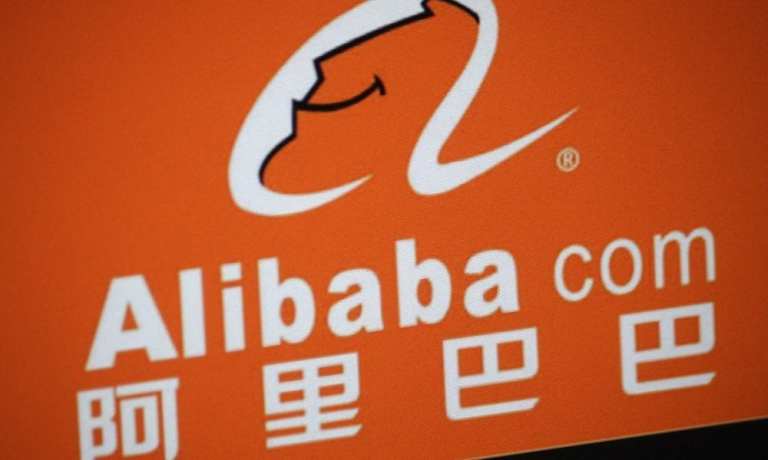Alibaba Bids For Metro Brick-And-Mortar Stores In China

One of the hottest battlegrounds in eCommerce these days — and that includes global, multi-pronged, behemoth eCommerce operators — is a firm in the physical world, the brick-and-mortar stores and chains that, for various reasons, are increasingly attractive to the likes of Amazon, Alibaba and others.
That was demonstrated again this week (Feb. 14) when an exclusive report from Reuters said that Alibaba wants to buy a stake in the Chinese wholesale operations of Germany-based Metro AG. Neither companies are commenting on the news, and reports noted that talks are ongoing, and a deal is not guaranteed.
If successful, Alibaba would reportedly take a piece of a cash-and-carry operation that has 95 stores in China, along with “real estate operations in major centers such as Beijing and Shanghai.” The report noted that “Metro and Alibaba have already partnered in online retail in China,” and that Metro “has been restructuring in recent years to focus on its core cash-and-carry business, selling Kaufhof department stores [and splitting] from consumer electronics group Ceconomy.”
Store Woes
The 2018 holiday shopping season did not exactly bring the most optimistic news about the ongoing prospects of physical retail, specifically in the U.S. — underscoring the apparent oddness of these recent pushes by Alibaba and Amazon to have more of a physical store presence in various countries. Just consider such things as Macy’s disappointing fourth quarter results; the slow, ongoing, almost grotesque death of Sears; the abandonment and/or repurposing of the U.S. and U.K. shopping mall. These factors are contributing to what Karen Webster, in a recent column, referred to as putting the traditional physical store model on “life support.”
“To save physical retail, anyone who wants to operate a physical store must convince consumers that it’s worth their time to — how’s this for an insight? — go there to shop,” she wrote. “That won’t be a slam dunk for traditional retailers. That’s because they’ve [taught] consumers over the last half-decade that walking into a store isn’t [nearly] as satisfying or productive an experience as shopping online — and not necessarily from those same traditional players.”
Those Metro stores that Alibaba reportedly wants still seem to have some life left in them. “Metro reported that same-store sales in Asia rose a currency-adjusted 7 percent to €1.04 billion ($1.17 billion USD) in the October-to-December quarter,” according to the Reuters report, which added that other parties are also bidding for that part of the Metro business.
There is no clear, public information about how Alibaba would use or operate Metro — how it would tie Metro more closely into the Alibaba ecosystem, or use those Metro assets in the service of Alibaba’s larger eCommerce aims. When Amazon bought Whole Foods, for instance, the eCommerce operator moved quickly to pump up its Prime free shipping and loyalty program by appealing to Whole Foods shoppers not yet enrolled in Prime. Amazon is also taking control over Whole Foods deliveries to online consumers, a move that promises to give Amazon even more dominance in logistics and shipping (to say nothing of groceries as a product category).
That’s not all when it comes to how physical stores may develop. As described by PYMNTS earlier this week (Feb. 11), online intermediaries — including merchants — are certainly interested in running the payment systems found in physical stores. For example, it won’t be long before using Amazon Pay in the Whole Foods store becomes a totally seamless experience, one preferred by the Prime members who shop there.
Alibaba Concept Store
Alibaba is no rookie in brick-and-mortar, though it has not been nearly as aggressive on that front as Amazon. Last year, the China-based firm was involved with fashion brand GUESS on a temporary store, located at The Hong Kong Polytechnic University.
The concept store worked with Alibaba’s Taobao platform. When customers entered the space, they would check in with codes from Taobao and use smart mirrors, which offered product information and virtual shopping carts. With the latter feature, shoppers did not have to tote items around the store. Instead, staff members delivered them to the fitting rooms.
It’s hard to see anything like that happening with those Metro stores in China, should Alibaba ink a deal — at least, not based on any information now available. Yet, as Amazon has shown (and Alibaba in a much smaller way), instead of being a relic of how retail used to be a generation or two ago, brick-and-mortar can serve as a way to advance the technology of commerce, and serve mobile-minded customers.
Amazon Store Expansion
Amazon Go stores — set to debut in the U.K., with 10 already in operation in the U.S. — provide an example of that as well. The stores do not have cashiers, but instead have sensors and cameras, and customers are automatically charged for goods when they leave.
However, Amazon faces stiff challenges as it brings its Amazon Go stores to that new market. Amazon has less than 1 percent of the grocery market share in the U.K., despite selling food in the country through its Amazon Pantry, Amazon Prime Now and Amazon Fresh endeavors.
There seems little question that traditional brick-and-mortar is on its way out. Surviving physical stores are adapting to the current era of eCommerce by offering “order online, pickup in store” and other features. New stores are increasingly being designed with eCommerce firmly in mind. Alibaba has yet to win the race for that Metro stake, but if it does, that could provide more information about how the physical retail space will develop under the tutelage of online-centric firms.